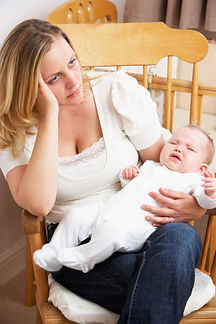


10% to 15% of women can experience a severe depressive episode within three months of delivering a baby. When including those who have suffered from minor depressive episodes, the rates jump to 20%.


Postpartum depression is associated with women who have-
* had a history of depression
* a familial history of mood disorders
* a stressful life
* an unsupportive partner and/or a weak social support network
Recently, there have been studies that show that there is also a genetic link to postpartum depression. A 2009 American Journal of Psychiatry, article showed that women who have a specific version of estrogen-receptor genes were more likely to develop postpartum depression. A study in the 2009 Archives of General Psychiatry also showed that levels of placental-corticotropin releasing hormone during pregnancy was a predictor of whether women would suffer from postpartum depression. Finally in the 2010 Journal of Affective Disorders, a study demonstrated there may be a link between hormone beta-endorphin during pregnancy and postpartum depression. These findings could be a major advancement in the prediction of those women who may be at risk even before their child is born.
Historically, medication has been the primary form of treatment. However, this method if treatment is being challenged by University of Iowa researchers who feel that psychotherapy should be the "first-line treatment". Doctors need to become more educated about postpartum depression and the alternative treatments that are available. Women should be given the option of psychotherapy over or in addition to medications, and doctors should be informed of all the pharmaceuticals and therapeutic treatments that are suited to the individual patients.





